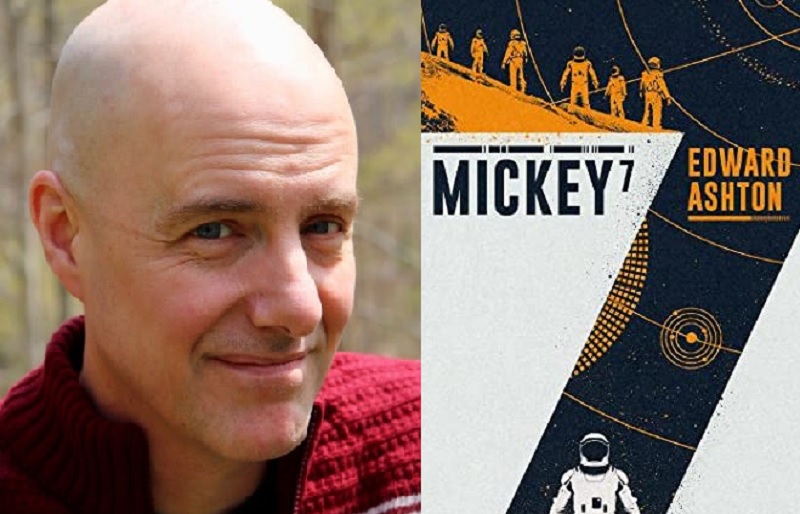 Edward Ashton has fun with a bunch of well explored science fiction tropes and throws in a little philosophy in his latest book Mickey7. The main character of the book is an Expendable, the one member of the expedition party who does all of the dangerous jobs as they are more versatile and it is easier and cheaper to replace a person than something mechanical. And when you are a civilisation throwing the dice on a long range colonisation mission to a new planet, there is plenty of work for someone whose job it is to die for you.
Edward Ashton has fun with a bunch of well explored science fiction tropes and throws in a little philosophy in his latest book Mickey7. The main character of the book is an Expendable, the one member of the expedition party who does all of the dangerous jobs as they are more versatile and it is easier and cheaper to replace a person than something mechanical. And when you are a civilisation throwing the dice on a long range colonisation mission to a new planet, there is plenty of work for someone whose job it is to die for you.
When the book opens Mickey Barnes, the seventh version of him anyway so known as Mickey7, is dying (again). Sent on a reconnaissance mission he finds himself at the bottom of a crevasse with his partner unwilling to rescue him (on the basis that they can just print another version so why take the risk). The two are part of a colonisation mission to the planet Niffleheim that is not going well. The planet turns out to be colder and more inhospitable than predicted and infested with dangerous life forms that the humans call Crawlers. Mickey7 survives but on his return to the base finds that his backup, Mickey8, has already been decanted. And in this society, for reasons that are explained later, there is only one thing worse than a clone: multiple copies of a clone alive at the same time. So the two have to work together to avoid being discovered and recycled while also helping the station understand and fight off the growing crawler threat.
The basic plot outline belies the fun that Ashton has with all of the concepts that he has thrown into this sandbox. Although the focus is on this colony, Mickey is a bit of an amateur historian so is across many of humanity’s failed colonisation attempts, the stories of which becoming more pertinent as the effort he is a part of starts to go south. Ashton explores the unsurprising conceit that finding a planet that is conducive to human life is not easy and that sometimes survival is as much a matter of good luck as good planning.
But the central idea of this book revolves around cloning and the psychology of someone who has volunteered to die, often horribly and painfully, on the basis that they will be reincarnated with most of their memories and personality intact. Mickey spends some of the narrative reflecting on his various deaths, all of which have served to protect and save the rest of the crew but which have left him contemplating his own life and its value. In considering who he is, Mickey has been introduced to the thought experiment of the Ship of Theseus, which seems to be getting a bit of a run at the moment since it popped up in Wandavision but also in C Robert Cargill’s robopocalypse book Day Zero. That is, when his body is rebuilt and the memories inserted into it, is the new Mickey clone the same person or someone different entirely?
Putting all of the philosophical and technological musings aside, Mickey7 is a fun read. Ashton continually ramps up the tension as the two Mickeys have to deal with increasingly complex personal relationships as the only partially successfully try to hide their existence in a small colony. At the same time, the outside threat grows and it is possible Mickey has the key to solving that too. And while the conclusion feels a little bit like wish fulfilment, it is still satisfying.
The big news about this book, however, is that it will be the next project for Oscar-winning Korean director Bong Joon-Ho (best known for Parasite, but showed in Okja and Snowpiercer that he is no stranger to action-oriented sci-fi with heart and in The Host that he loves a good creature feature) and starring Robert Pattinson as Mickey.
Robert Goodman
For more of Robert’s reviews, visit his blog Pile By the Bed
Other reviews you might enjoy:
- Mal Goes to War (Edward Ashton) – book review
- The Colony (Audrey Magee) – book review
- A Room Made of Leaves (Kate Grenville) – book review

Robert Goodman is a book reviewer, former Ned Kelly Awards judge and institutionalised public servant based in Sydney. This and over 450 more book reviews can be found on his website Pile By the Bed.





